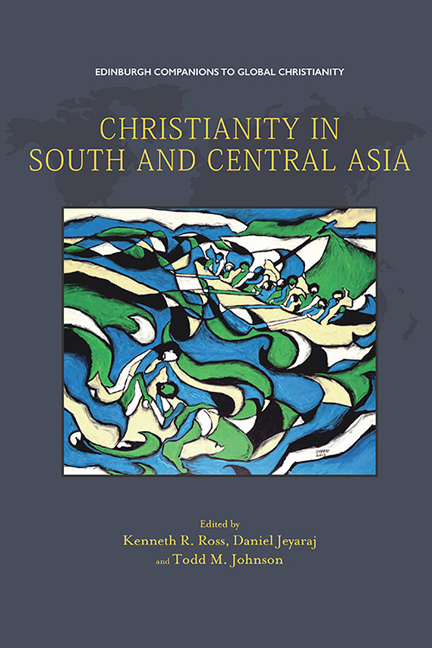United and Uniting Churches
Published online by Cambridge University Press: 30 April 2020
Summary
While the origins of the Christian presence in the Indian subcontinent can be traced back to apostolic times, it is clear that it took a new turn with the arrival of Western missionaries from the end of the eighteenth century. In many places the missionaries provided social uplift, protection, identity, liberation and education besides spreading the good news of Jesus Christ that led, in some contexts, to mass movements towards Christianity. The interaction between expatriate missionaries and diverse local contexts resulted in various new expressions, including hybrid, revolt, renewal and reform developments within existing communities and the emergence of new religious movements influenced by Christian values and faith. South Asian countries underwent profound changes before, during and after their independence from the colonial powers. These changes – political, social, cultural and structural – impacted the churches and mission agencies. One result of this was a movement to bring Christians together in united bodies in order to witness to the good news of Jesus Christ more effectively. In 1947, the Church of South India was formed by bringing together Anglicans, Methodists, Presbyterians, Lutherans and Congregationalists. Since then, other churches and mission agencies have come together to form united churches in India and in other South Asian countries. This essay considers these uniting and united churches that have been formed in South Asia, in light of contemporary challenges.
The Church of South India
The first Protestant mission entered South Asia in the early eighteenth century, heralding a continuous influx of Protestant missions across a span of more than two centuries. To India's already diverse society, with its different regions, religions, philosophies, castes and languages, the various Protestant missions brought another layer of segmentation. A divided Christian witness was, therefore, no witness at all. In such circumstances there arose a dire need for unity among the missions that would promote closer cooperation and initiate united action. With this motivation and driven by a theology of unity, various Christian leaders in different parts of India attempted to bring coordination and better working relations among the different missions and denominations.
The formation of ecumenical alliances can be traced back to the 1860s, when the Presbyterians in North and South India started to negotiate for an Indian Presbyterian Alliance.
- Type
- Chapter
- Information
- Christianity in South and Central Asia , pp. 236 - 247Publisher: Edinburgh University PressPrint publication year: 2019



